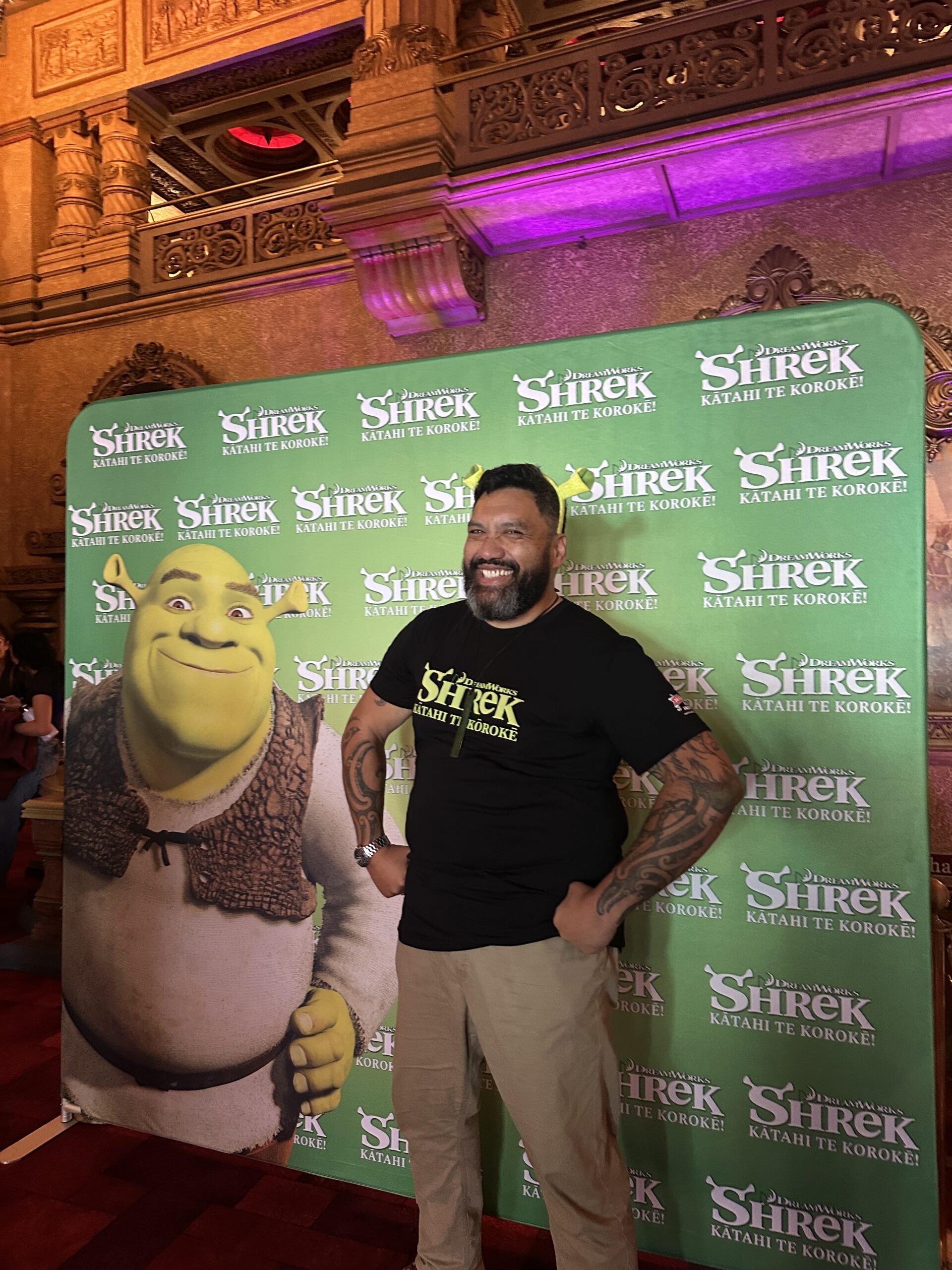The new generation of filmmakers
Nā Tainui Stephens
Read the Original article HERE
In March last year, the Māoriland Film Festival in Ōtaki was to be our biggest ever. We were to host more than 100 overseas guests, along with many Māori and Pasifika filmmakers. Thousands of pre-sold tickets had been snapped up.
Then Covid found its way through Customs and latched on to Aotearoa.
Overseas, swathes of people were being infected and dying. Here, we had only about a dozen cases. But no one knew what might happen next. There was no cure for the worst affected. No sign of a vaccine. The invisible killer was scaring the bejesus out of the world — and the government closed our borders.
At Māoriland, we’d already asked our overseas guests to stay away, but, after one day, we had to call off the whole festival. We knew it had to be done but it was still tough. Months of hard work was going down the drain. And, as well as thousands of surplus ice blocks to deal with (they ended up in whānau freezers around town), we had to decide what to do with a dozen of our Ngā Pakiaka rangatahi filmmakers who’d arrived to help.
The Ngā Pakiaka team like us all, were anxious about what might happen next. But then the organisers — Māoriland producers Libby Hakaraia, Maddy De Young, Matilda Poasa, and uber-talented rangatahi mentor Aree Kapa — hit on the idea of using the downtime as an opportunity for the young filmmakers. They hatched the Ngā Pakiaka Incubator Programme.
We started training rangatahi in the culture of film back in 2016. At that stage, they were a handful of our teenagers who’d been hanging around the festival since the beginning.
Our tamariki are kura kids — and they have opinions. One of those opinions, five years ago, was that they should play their own part within the festival. We agreed. They decided to call themselves Ngā Pakiaka (The Roots).
Since then, several thousand rangatahi have viewed the films that Ngā Pakiaka curated over what became their allocated two days of the festival.
After showing films to people their own age, it was a logical next step to make films with people their own age. The Māoriland Charitable Trust got them some equipment and, after a few pointers and instructions from us, we left them to it. It became normal to see little teams of rangatahi filming comedy scenes in the streets of Ōtaki or swarming into someone’s house to shoot a horror film.
Ngā Pakiaka became a team of a dozen teenagers adept in writing, shooting and editing their own short stories. To develop their skills further, Māoriland devised a peer-to-peer initiative where our young people shared with other youth what they knew about filmmaking.
Māoriland and the Ngā Pakiaka filmmakers held workshops across Aotearoa, enabling rangatahi to tell their stories to themselves and their communities. The results were screened to welcoming families, elders, and other audiences.
Then, in an initiative called Through Our Lens, they took the same kaupapa overseas. With Māoriland support and their own fundraising, our rangatahi took their peer-to-peer programme to Indigenous communities in Hawai’i, Tahiti, Rarotonga, Sāmoa, Taiwan, and Finland. By sharing themselves and their stories like this, they now have networks across the Indigenous world.
Over the past five years, Ngā Pakiaka has given 3,000 rangatahi, here and overseas, a taste of filmmaking. With the expert guidance of Māoriland’s producers, they’ve handled the planning, funding, and delivery of their work. It’s hard work.
And, of course, the young talent blossomed.
Te Mahara Tamehana, for instance. We’d first met him as a 14-year-old at a Through Our Lens workshop in Awanui, north of Kaitāia. He focused on telling a story about the trauma of youth suicide. Two years after joining Ngā Pakiaka, he’s a promising scriptwriter and director.
Oriwa Hakaraia was another teenage talent, and one of the original festival kids. She has storytelling in her DNA and an uncanny knack for the words and images a cinema tale requires.
By 2018, these mates from Ngā Pakiaka were ready to shoot a short film written by Oriwa called BUB. It’s a mokopuna “home alone” story. Although both Oriwa and Te Mahara had made films before, they’d only worked with rangatahi like themselves.
This time they had a professional on board — Ray Edwards, the director of photography, who was about to film Cousins, based on the Patricia Grace book.
The adult crew met with the youthful directors, and everyone was buzzing, although the young team was daunted at first by the prospect of working with adults for the first time.
The completed film was accepted into the ImagineNATIVE film festival in 2019. Then Oriwa and Mahara went to Toronto to present BUB. They’re the youngest Kiwi directors to have their work premier at an international film festival.
After Covid closed our festival in 2020, Oriwa and Mahara, and their Ngā Pakiaka cohort decided to repeat the BUB experience and make short films with professional crews and actors.
No one knew it at the time, but these rangatahi were going home to a lonely world of lockdown. They found one antidote by collaborating over Zoom to create their film proposals. They pitched their ideas to the Māoriland producers, and eight stories were chosen to be developed into scripts.
Eight teams were then mentored by experts. And there was support for the Ngā Pakiaka Incubator Programme from the New Zealand Film Commission, Sundance, and a Boosted fundraising campaign.
Between lockdowns, there were film shoots around the North Island. In Mitimiti, Tiana Trego Hall’s doco explored the loss and return of toheroa. In Auckland, Bailey Poching created a farce about the Dawn Raids, and Aree Kapa directed a poignant drama about a father who risks all because of a promise to his kaumātua.
In Te Araroa, the Ngātai-Melbourne sisters, Tioreore and Keeti, made two distinct dramas about loss and a way forward. And back in Ōtaki, Te Waiarangi Ratana lampooned bullies with a comedy of swaggers.
In Kaitāia, Mahara wanted to honour his town, his mates, and their stories. He wrote a drama about growing up with compromised father figures and the impossible pressures that young men can face.
These Incubator films will be released at the Māoriland Film Festival in March next year. It will be two years since Covid forced the adults to shut one door, and the rangatahi to open another.
In a recent keynote address to the ImagineNATIVE film festival in Toronto, Oriwa, now 18, spoke for many of her peers when she said: “We often feel stuck in a room with people who look down upon you.” But, she added, “I come from a storied landscape and a people who survive because we continue to tell the stories of our ancestors.”
I watched Oriwa on the set of the last of the Ngā Pakiaha Incubator films to be shot — Ruarangi, a 19th century adventure about kidnap on the high seas, which Oriwa wrote and directed. It was clear she was fully in charge but leaning happily on the collaboration of a small, skilled and mobile cast and crew.
It gave me a thrill to hear a new generation of Māori director speak in a language that reflects a mix of the old school and new, the analogue and the digital.
“Karawhiua!” (Action!)
The scene plays out . . .
“Cut. Yep!”
There’s a pause while she views playback. She calls out to Jess who’s working the continuity iPad.
“That’s sick. Print it!”



